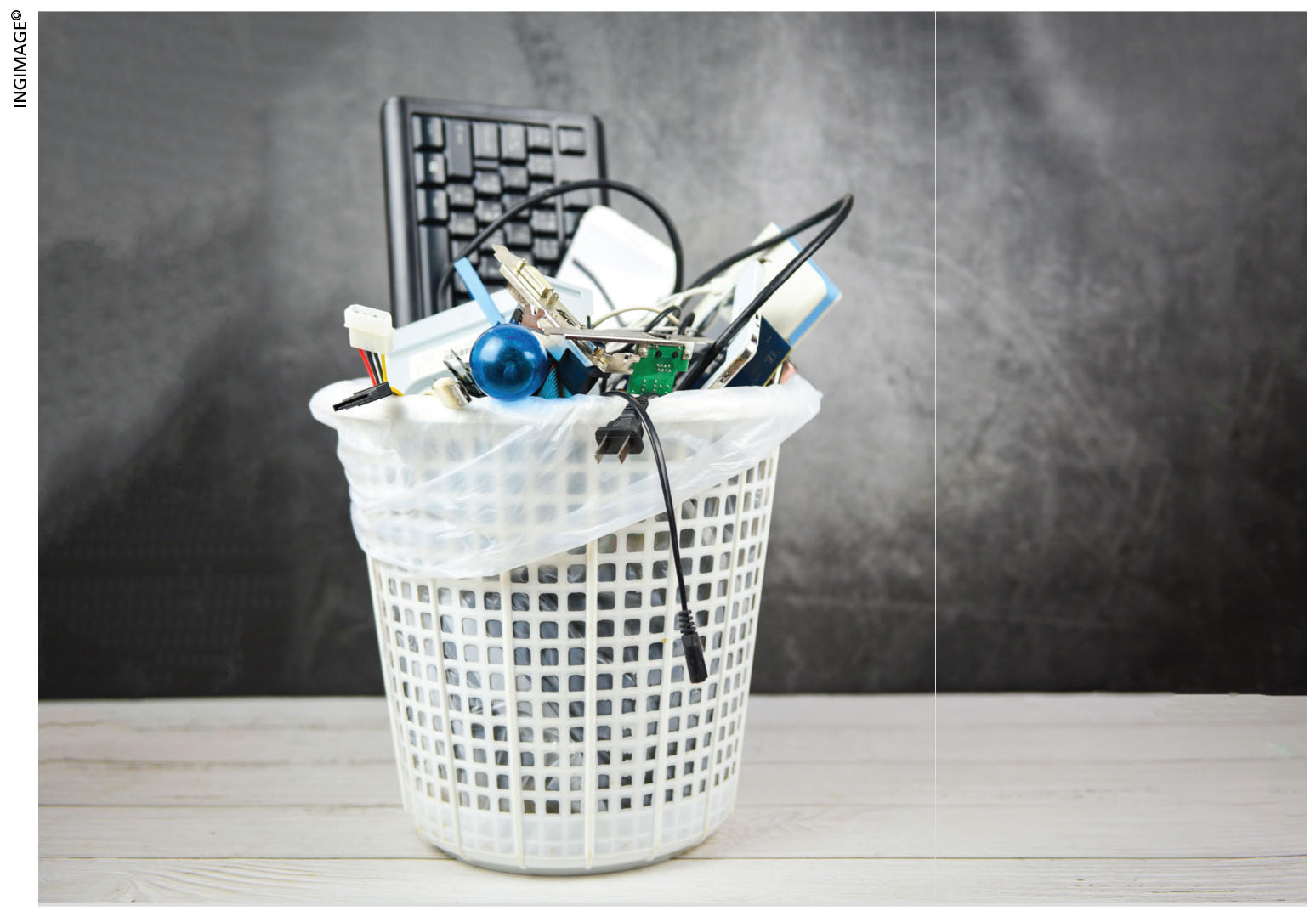ELECTRONIC WASTE MANAGEMENT
SAFE DISPOSAL OF E-TRASH
Ruwandi Perera warns users against the irresponsible dumping of e-waste
Humans are clever and we love anything labelled ‘smart.’ Phones, watches, speakers, cameras, locks… the list goes on. Yet, how savvy are we when it comes to disposing of our smart items when we’re done with them?
A few of us might ‘drop off’ our old phones and laptops at telecommunication businesses that advertise the need to responsibly dispose of electronic waste. Some might get in touch with recyclers or e-waste collectors.
Did you know that the Central Environmental Authority (CEA) has published a list of licensed e-waste collectors? Yet, most of us simply trash our electronic waste in the bin or at a landfill.
E-waste comprises any type of electronic product that has come to the end of its useful life. These include smartphones, televisions, printers, fax machines, fridges, washing machines and anything that runs on electricity or batteries.
The good news is that many of these can be reused, refurbished, recycled or upcycled. But the bad news is that many people don’t understand that the improper disposal of these can pose immense dangers to people and the planet.
According to the Geneva Environment Network, every person on Earth produced 7.6 kilogrammes of e-waste on average in 2021. That resulted in a massive 57.4 million tons of electronic waste, which is heavier than 287,000 blue whales or about 300 large cruise ships!
The issue with e-waste is that it’s not biodegradable – and accumulates in the soil, oceans and air. It’s toxic since it contains dangerous contaminants such as lead, mercury, beryllium, arsenic and so on.
In addition to killing off vulnerable ecosystems, e-waste also poses a significant threat to humans – causing cancers and neurological damage, as well as compromising reproductive health. E-waste also contributes to climate change since electronic items release a lot of CO2 into the atmosphere.
The global picture is scary and so is the local scenario.
In a paper published 10 years ago, Harshani Mallawarachchi and Gayani Karunasena of the Department of Building Economics at the University of Moratuwa quoted a study conducted by the Ministry of Environment and Natural Resources in collaboration with the CEA, which noted that mobile phone penetration had increased from 28 to 40 percent in the island.
They recommended that Sri Lanka strengthens its national policy on e-waste management since this was posing a major threat to the country.
A decade later, Sri Lanka has over 32 million mobile connections, which is equal to 149.9 percent of the total population. On top of this, we have a heightened demand for computers, televisions, printers and kitchen appliances.
While there has been some progress in the legal, infrastructural and entrepreneurial spheres about the responsible disposal of electronic waste, awareness levels among the general populace are still low.
A 2016 report by the Auditor General’s Department notes that Sri Lanka produces 92,000 metric tonnes of electronic waste a year. The authors predicted that this would increase to around 120,000 metric tonnes by 2020. The majority of such waste comprises fluorescent light bulbs, mobile phones, televisions, batteries and computers.
While we can lobby for the government to take stricter action or businesses to be more environmentally sustainable, tackling the issue of e-waste is something individuals and families can also actively participate in.
And no, it doesn’t mean we have to stop using smartphones or go off the grid. It simply means that we must take more conscious decisions and know when enough is enough.
Being a responsible consumer means buying items you really need and being smart about it. There are many devices out there that have multiple functions. For instance, if you have Alexa or a similar home automation system, it can be used for music and entertainment or as a digital clock, reader and even news platform – all in one. The key is to avoid duplication of devices to improve effectiveness and reduce e-waste generation.
Further, use your devices in a way that extends their lifetimes. If it’s a phone – keep it clean, get a case so that the unit doesn’t get damaged and refrain from overcharging your battery.
Finally, the correct disposal of electronic items needs much more effort than simply dumping these in the correct garbage bins. Get to know your neighbourhood recycler or drop off your e-waste at a recycling collection point. If you want to go one step further, become the family e-waste collector – you’ll be doing your community a favour and saving the planet.





